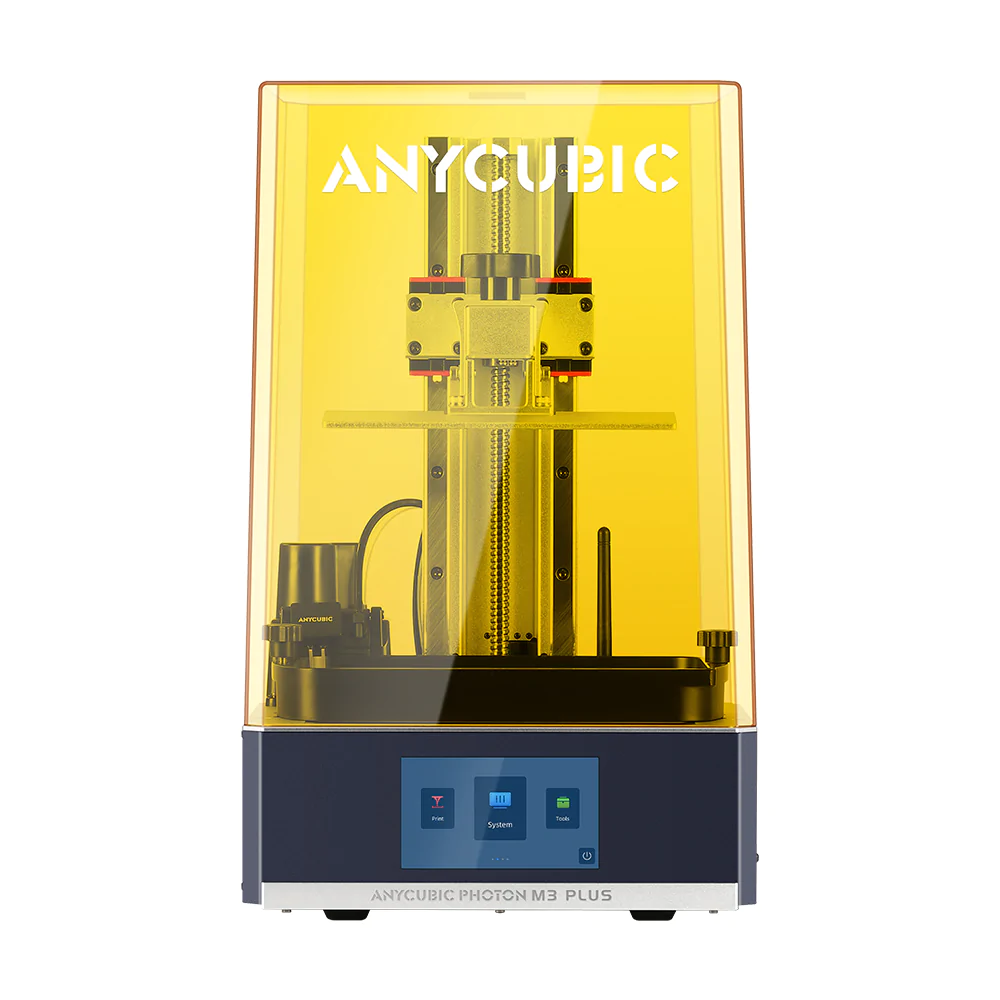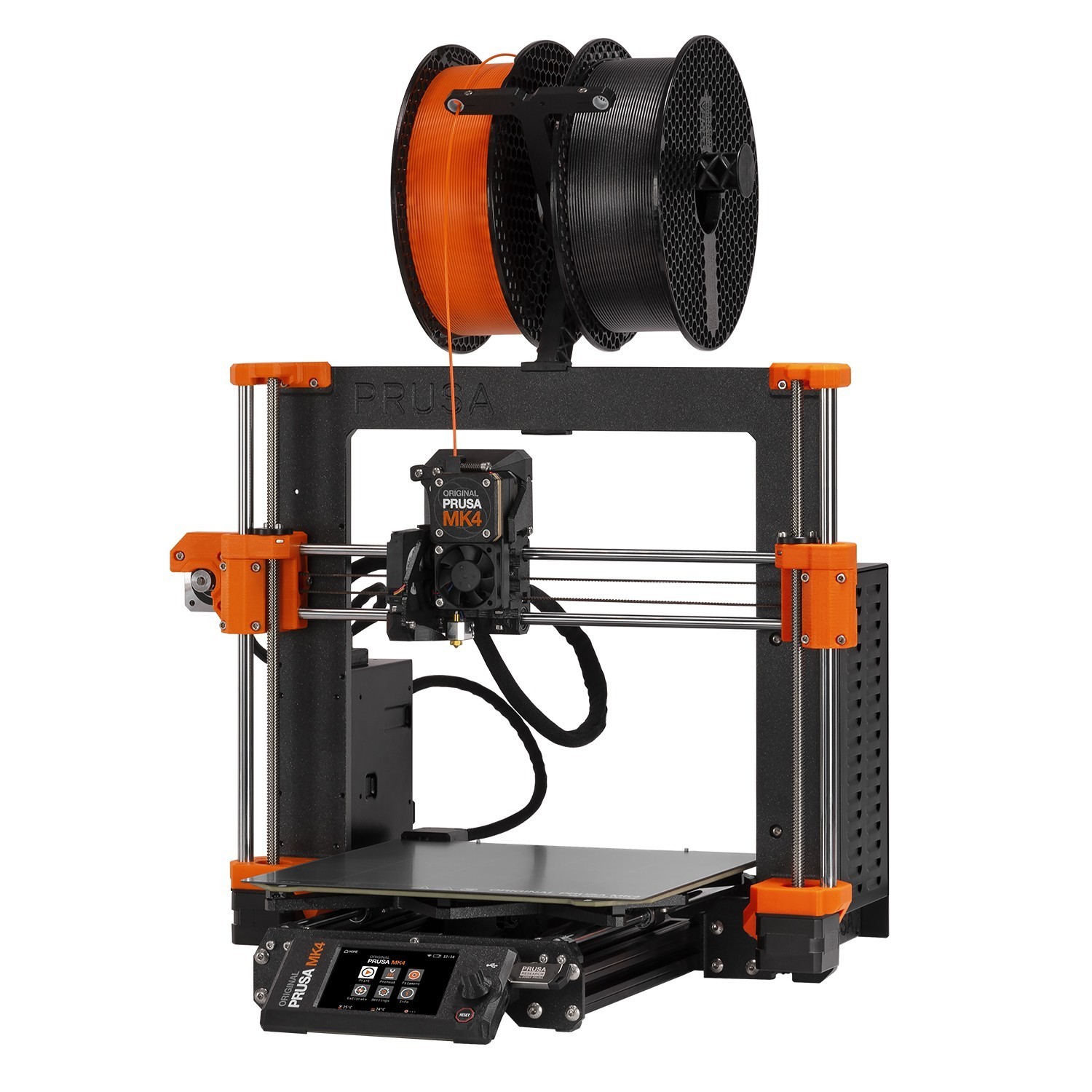Compare Photon M3 Plus vs Original Prusa MK4 3D Printer
Comparison between the best 3D printers
Choose the best 3D printer at the best price. The cheapest 3D printers are here.
Buy a 3D printer here with 3D Fila.
 |
 |
|
| Model | Photon M3 Plus |
Original Prusa MK4 3D Printer[BUY Original Prusa MK4 3D Printer] |
| Printing Material | Resin | Filament |
| Buy Resin for Anycubic Photon M3 Plus | Buy Filament forPrusa Original Prusa MK4 3D Printer | |
| Estimated price | $430,00 | $1099,00 |
| Manufacturer | Anycubic | Prusa |
| Release Year | 2022 | 2023 |
| Print Volume [mm] | 197x122x245 | 250x220x210 |
| Printer Size [mm] | 290x360x475 | 500x400x550 |
| Weight [kg] | 11 | 7 |
| Power Loss Recovery | NO | YES |
| Maximum Resolution [mm] | 0,01 | 0,1 |
| Processor | Custom 32-bit xBuddy electronics with STM32 | |
| Display | Display touchscreen 4,3'' | Display touchscreen 3,5'' |
| Power Supply | 150 W | 240 W |
| Connectivity | USB / Wi-Fi | USB / Wi-Fi / internet via Prusa Connect |
| Operating systems | Windows, Mac, Linux | |
| Date of registration in the system | 2023-01-19 | 2023-06-06 |
| Release date | 2022 | 2023 |
| Extra features | The Photon M3 Plus printer stands out for its automatic resin filling system, capable of keeping the tank always full. It offers wireless connectivity and support for the Anycubic Cloud app, allowing remote control and monitoring, including with an optional camera. Its 34-micron resolution, provided by a 9.25-inch monochrome LCD screen, ensures high-precision prints. Printing speed is remarkable, with a layer curing in 1.5 seconds. Other features include a large build volume, laser-etched build plate, and compatibility with a wash and cure station. | The Original Prusa MK4 stands out with automatic first-layer calibration via Loadcell sensor, high-speed enabled by Input Shaper and Nextruder for precise prints. It includes quick-change nozzles, customizable UI, and Ethernet/Wi-Fi connectivity. It supports a wide range of materials, from PLA to flexibles. Equipped with a 32-bit xBuddy mainboard and precise stepper motors, it offers exceptional print quality, enhanced security, and remote printing options via Prusa Connect. |
| Support for multiple colors and materials (AMS and CFS) | NO | NO |
Notes * |
||
| Cost-benefit | 8 / 10 | 6 / 10 |
| Hardware | 2.4 / 10 | 2.8 / 10 |
| Tela | . | . |
| Print volume | 3 / 10 | 3 / 10 |
| Performance | 9 / 10 | 1 / 10 |
| [BUY Original Prusa MK4 3D Printer] |
Conclusion |
| In comparing the Anycubic Photon M3 Plus and the Original Prusa MK4 3D Printer, several key factors highlight their distinct advantages and target user bases. The Photon M3 Plus, released in 2022, is a resin printer that excels in high-resolution prints and swift layer curing times. Its strengths lie in its automatic resin filling system, impressive precision, and remarkable print speed. This model is well-suited for users prioritizing detail and precision in their prints, particularly for applications such as miniatures and prototypes. Additionally, its more affordable price point makes it an attractive option for hobbyists and those new to 3D printing who want high-quality results without significant financial investment. Conversely, the Original Prusa MK4, released in 2023, caters to a different segment of the market. This FDM printer is praised for its robust feature set, including the automatic first-layer calibration, support for various filament types, and advanced connectivity options through Prusa Connect. While the price is significantly higher, it offers a blend of versatility and reliability for more experienced users who may require a printer capable of handling a wider array of materials and applications. The MK4's focus on user experience, combined with its high print quality and enhanced security features, positions it well for both professional and enthusiast settings. Ultimately, the choice between these two printers depends on the user's needs and budget. The Photon M3 Plus is ideal for those seeking precision and affordability in resin printing, while the Original Prusa MK4 is better suited for advanced users looking for versatility and functionality in FDM printing. Each printer offers unique benefits, making them both worthwhile considerations depending on the specific use case and printing requirements. |

